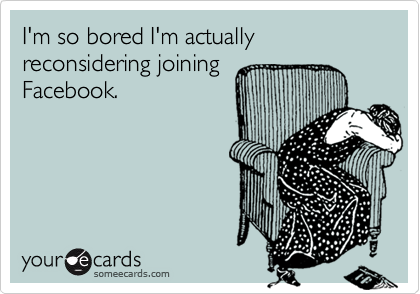A recent study by Pew got personal with Facebook users and has revealed a wishy-washy relationship with the site. There wasn’t a groundbreaking finding, such as a massive dip in overall Facebook usage, but the study did show a majority of users are less satisfied, and their usage less prolific.
According to Pew, 61 percent of current Facebook users say at one time or another they have voluntarily taken a break from using Facebook for a period of several weeks or more. The dominant reason given was that they simply needed a hiatus from using the site. Other reasons were more startling, such as lack of compelling content, loss of interest in the site, “drama” from friends, and concerns that the network was being too much of a time sink.
The stats get worse – 20 percent adults who are online said they once used the site but no longer do so. Only eight percent of those who never used it are interested in becoming users in the future. If the site’s magnificent growth and pestering of friends didn’t convince them to do that over the past nine years, it’s hard to believe even that entire eight percent will be on the site anytime soon.

It’s still safe to say Facebook remains the dominant social media platform, and Pew points out that two-thirds of U.S. adults are using it. It’s the relationship with the network that has reached a mucky ground. For brands, that could affect the debate over which social platform delivers the best overall value.
In 2011, CNET compared Facebook to Google+ and Twitter, looking at five key metrics that determine value to companies: reach, flexibility, design, interaction, and mobile presence. It found Facebook was delivering the best brand experience of any other social network. Fast forward to 2013 and we could be seeing user fatigue on the once phenomenally popular platform.
Pew’s study doesn’t disprove Facebook’s relevancy and value, but it presents an interesting shift in the social sphere. Facebook, which has never been spotless in the public eye for its privacy practices, has suddenly had service pratfalls such as the backlash over its Instagram advertising policy. Meanwhile that other leading platform, Twitter, seems to be going the opposite direction. It picked up a video app maker called Vine that could give brands seamless video ads embedded as tweets. Last week it had itself one heck of a Super Bowl party, spotlighted by a brand lovefest on the network.
Source: Pew

